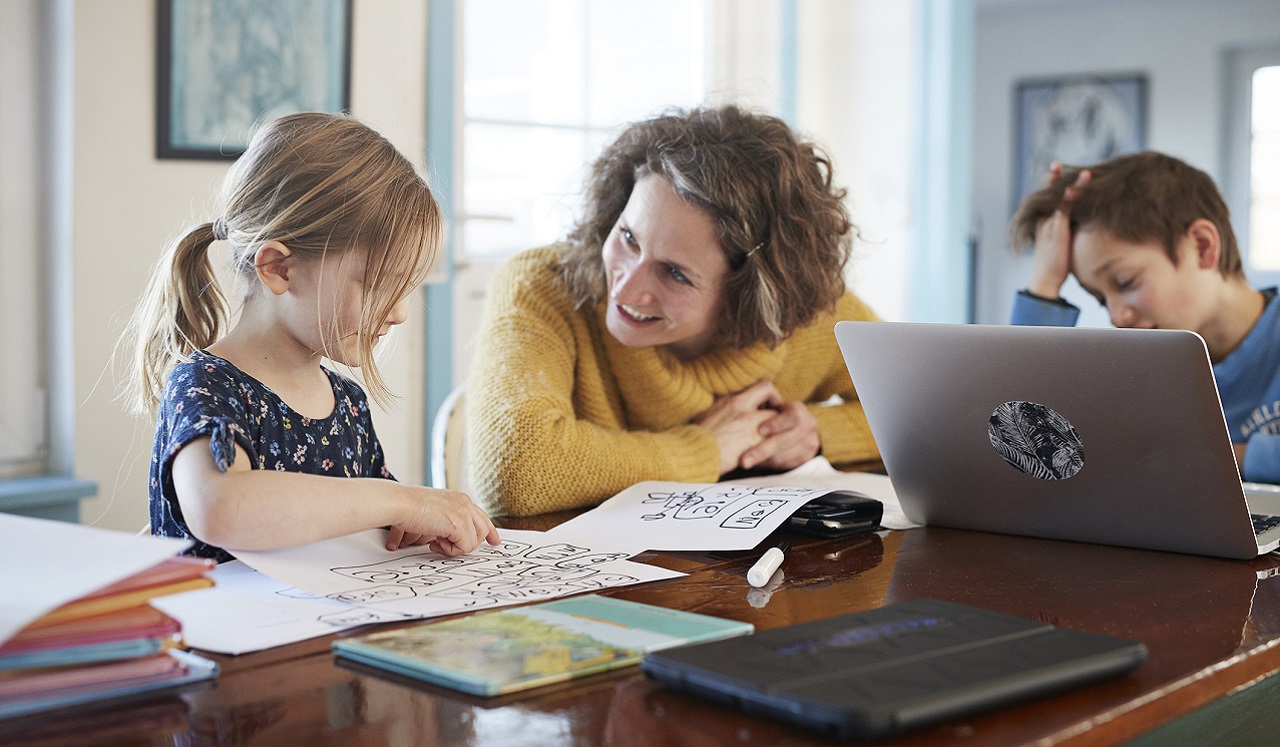July 7, 2020
“Wash your hands!” In the past, you may have told that to your kids—before meals—just as your parents told you.
But the rules have changed with the COVID-19 pandemic.
Now we’re told children and adults alike should wear masks and scrub up constantly, like doctors do before surgery.
So it’s understandable if you fret before sending your little ones to play in the yard, says Marion E Woerner, MD, FAAP at Children’s Memorial Hermann Pediatrics Texas Medical Center in Houston.
But what about the adage that exposure to germs helps build a child’s immune system?
Dr. Woerner sorts fact from fiction.
Keeping kids at home, away from others, will weaken their immune systems.
False: “While they may not have been exposed to a particular cold or virus, their immune system from before the pandemic will remain intact,” she says.
But that isn’t enough to keep them safe: They should remain more than 6 feet apart from others, and make sure they wash their hands thoroughly and frequently.
Being social is vital to their development, so come up with creative ways for them to be truly distant while they socialize, even via supervised screen time platforms that we usually encourage limiting.”
Children should play outdoors, in the mud and with pets.
True. “Being exposed to allergens can help protect and prevent kids from developing allergies or asthma later in life,” she says.
It’s better to skip routine checkups rather than expose your child and yourself at a pediatrician’s office.
False. Kids miss not only immunizations, but also developmental and growth checks, Dr. Woerner says.
Plus, Memorial Hermann-affiliated pediatricians take your health and that of their own staff seriously. No one enters their offices without having their temperature taken or being pre-screened by phone for symptoms, and everyone must wear surgical masks.
To further minimize your chance of being exposed to COVID-19, appointments are staggered and only one adult can accompany the child, she says. Rooms and equipment are cleaned thoroughly between patients, per guidelines of the U.S. Centers for Disease Control and Prevention (CDC).
Measles can be deadly.
True. So, can whooping cough and chicken pox, Dr. Woerner says. “Those diseases are extremely contagious, and they can put people in the ICU or can be fatal,” she adds.
Parents unwittingly may think they have a cold, then give whooping cough to their children.
All three diseases are highly preventable thanks to vaccines—and have been for decades. That’s one reason many of us don’t recall such diseases killing children.
And yet the CDC reports a sharp fall in immunizations for those diseases during the pandemic, with 2.5 million fewer doses nationwide than usual, from mid-March to mid-April.
“We could start to see these diseases again—and that’s scary,” she says. “I cannot emphasize enough the importance of childhood vaccines. They are one of the most important things we can do for kids’ immune systems.”
Hand gels are better than soap and water.
False. “Soap and water are best” Dr. Woerner says. “It is more effective if you wash long enough to sing the happy birthday song twice.” If soap and water are not available, use an alcohol sanitizer that’s at least 60% alcohol.
Children cannot catch COVID-19.
False. “Our knowledge about COVID-19 constantly changes, but kids definitely can get it,” Dr. Woerner says. “Often, they don’t get as sick as adults, but we are seeing kids hospitalized in our city. Some are very sick in ICU, but most recover.”
Some children face the “rare but significant risk” of a Kawasaki-like illness that inflames blood vessels in the heart and throughout the body a few weeks after recovering from their initial bout with the coronavirus. “Continuing to be cautious about COVID-19 makes sense,” she says.
Schools should reopen this fall.
To Be Determined. The American Academy of Pediatrics suggests a long list of guidelines for school districts and state and public health departments to consider before in-school academics and athletics are approved, Dr. Woerner says.
These measures may include masks, temperature-taking, hand sanitizers, widely spaced-out desks and having teachers move between classrooms rather than students.
“And who knows what we all will learn in the months ahead about COVID-19?” she says. “In the meantime, you really cannot be too clean.”
Here are a few helpful links:
- COVID-19 Planning Considerations: Guidance for School Re-Entry from the American Academy of Pediatrics
- Guidance Related to Childcare During COVID-19 from the American Academy of Pediatrics
- AAP urges vaccination as rates drop due to COVID-19 from AAP News
The information in this article was accurate as of July 7, 2020.


